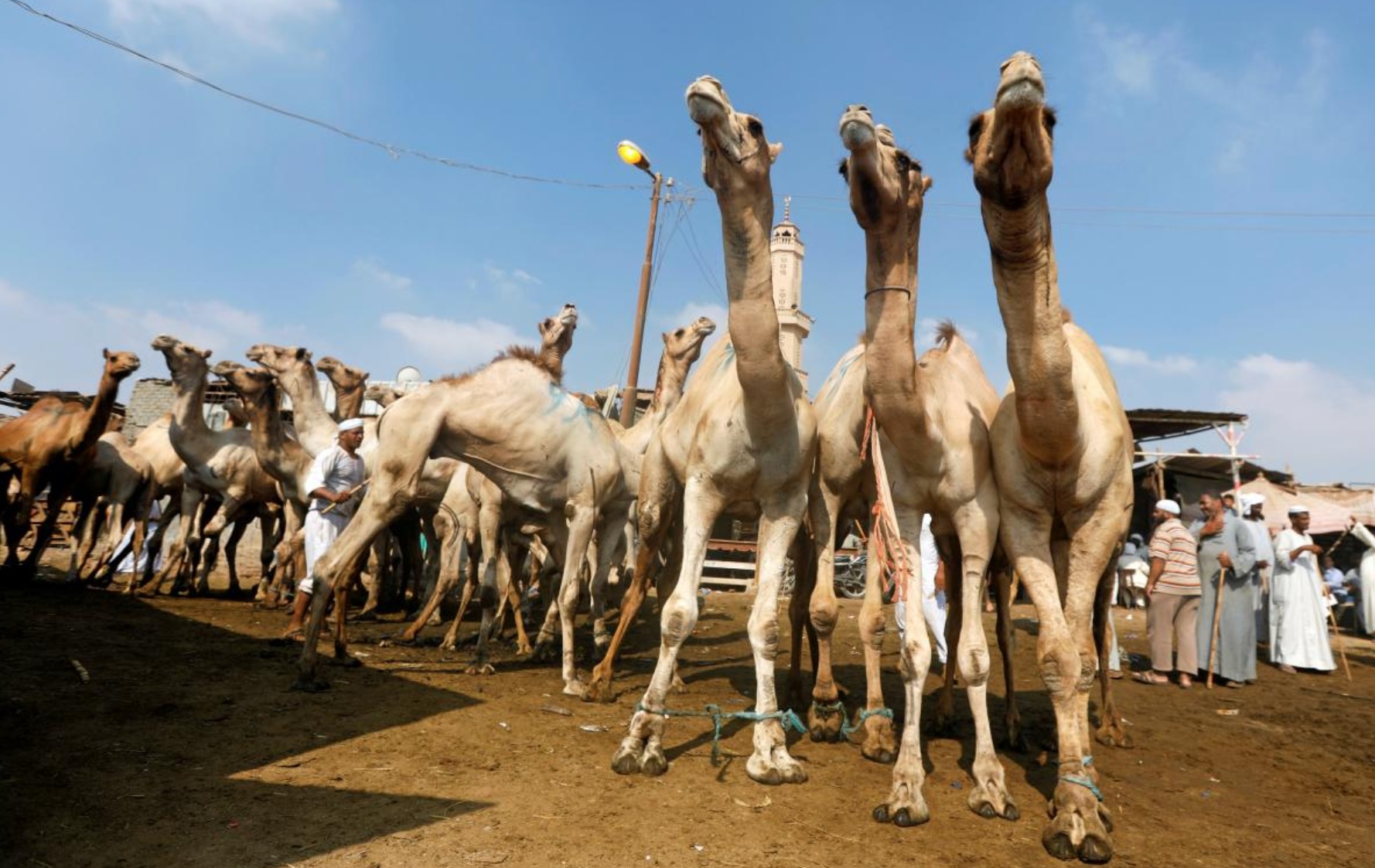
BIRQASH, Egypt (Reuters) – Muslims often slaughter sheep at the annual Eid al-Adha “feast of the sacrifice” which falls next week, but some Egyptians are thinking bigger.
Wealthier customers are flocking to the Birqash market, northwest of Cairo, where traders from across east Africa bring animals for auction – not sheep, but camels.
“This camel market is the biggest in the world … it is the only one that still operates by word of honor, without paper,” said camel trader Faraj al-Gammal, 50.
“Any businessman who comes from abroad, bringing in … camels, knows he is safe and secure here.”
Buyers inspect camels that limp around on three hoofs, the fourth tied at the knee to restrict their movement.
Many are sold at prices ranging from 15,000 Egyptian pounds ($840) to 40,000 pounds, while some fetch as much as 65,000. Sheep sell for as little as 3,000 pounds.
One trader pointed out that camels were reared more naturally than cattle or sheep.
“Cattle get hormone injections to increase their weight, but camels don’t,” said Azmi Mansour.
Used mostly for desert transport, camels also provide Bedouin with milk, meat and hair to weave into clothing.
Eid al-Adha commemorates Islam’s version of the biblical story of God’s testing of Abraham’s faith by commanding him to sacrifice his son.
Meat from the animals slaughtered for Eid is traditionally shared with the poor.
Reporting by Amr Abdallah; writing by Sami Aboudi; editing by Andrew Roche




